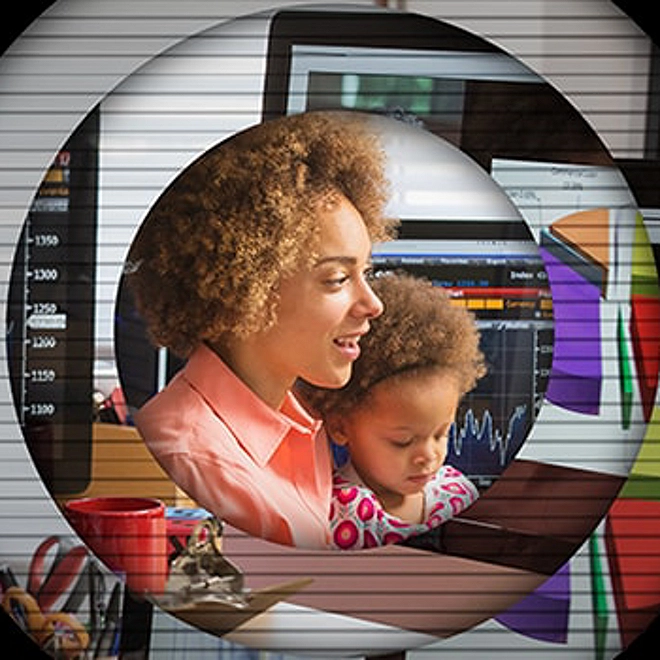On the road again: How global mobility leaders can drive sustainable growth
Article by Jim Pickett | Posted: 16 Mar. 2022 ⌚ 5 min. read
While the pandemic is unlikely to fully end in 2022, business trips and global mobility assignments are slowly returning, emerging questions that mobility professionals are beginning to ask include: What sustainability gains were achieved during the pandemic and how can the mobility function support the business in maintaining those gains and re-enter the post-pandemic world in a more responsible way?
As we enter year three of the pandemic, and the increasing occurrence of severe climate events, society’s desire to protect our planet from future ‘black swan’ events and disruption has become increasingly evident. In response, not surprisingly, we have seen a massive shift in the way companies view the sustainability agenda. According to a recent survey by Deloitte1, 89% of CxOs agree there’s a climate crisis and see the world at a tipping point to act.
When the UN’s Intergovernmental Panel on Climate Change (IPCC) issued a ‘code red’ for humanity on climate change2. Researchers and scientists opined, and not only are companies listening, but they are also acting and embedding climate considerations into every part of the business.
Employers are in the process of adapting and innovating mobility solutions, addressing internal policies and practices as a part of embedding meaningful sustainability initiatives into their core business strategies, operations, and cultures. A majority of companies are intentionally reducing air travel and training employees on their climate actions and impact.
Deloitte’s CxO sustainability report1 revealed leading organizations have implemented 'needle-moving' sustainability actions such as tying senior leader’s compensation to environmental performance and are requiring suppliers and business partners to meet specific sustainability criteria among other actions.
Businesses are experiencing deep transformation as they move towards ‘net-zero’, with the pandemic helping accelerate the achievement of sustainability goals through the significant reduction in travel and consumption. Consumer and employee expectations of how companies should respond to maintain these gains are rising to become front of mind. So, too, is the level of scrutiny from regulators and governments.
How then can a corporate function so intrinsically linked with mobility, a factor often highlighted as ‘carbon heavy’, evolve to be a leader in sustainable thinking?
To find the answer, it is worth reflecting on the reasons for travel and global mobility assignments in the first place. In addition to bringing employees to where a job is located, or vocational ‘on the job’ training; global assignments help develop culture, collaboration, and innovation in ways that cannot be achieved in a virtual environment. There is a need to find balance. Businesses are keen to get the right people back into the right places to drive the next wave of growth, and global assignments will have an important role in the future, but it must be on a sustainable basis.
Sustainable mobility: First steps
With new growth now on the horizon, CxOs are empowering their business functions to think critically about how to embed sustainability goals into their operations, and that has opened the door for the Mobility function to start envisioning what sustainable mobility should look like.
In part, this is about understanding and assessing how mobility assignments create value for the organization and then thinking about how those objectives could be achieved more sustainably. This is not an exercise in reducing the quantum of mobility assignments, but rather rethinking the approach and purpose of mobility assignments overall.
The challenge is that the role the mobility function plays in driving the sustainability agenda is not always obvious. When you start to go beyond basic measures like adjusting the number of assignments or counting carbon offsets, the science can often be confusing. Making decisions for the future, therefore, will require mobility leaders to either understand the science themselves, or find a specialist they can trust to help them with the more technical aspects.
The good news is that a growing number of mobility leaders are recognizing this need. At Deloitte, we are providing insight and guidance on how mobility programs can evolve, creating innovative and sustainable approaches to embed into global assignments and processes as they move towards net-zero. Some interesting approaches and initiatives are emerging.
For example, we have seen mobility professionals focus on intentional, purposeful travel by reducing the resource and carbon impact of the assignment itself – some have partnered with airlines and vendors that share their commitment to sustainable practices; others are promoting a ‘buy local/ship nothing’ approach.
Another emerging trend is for global mobility functions to start reviewing their supply chain. Recent insights highlight that global mobility leaders are aware that part of the sustainability solution is to review and challenge their vendor ecosystem. We anticipate that vendors involved in enabling a global assignment may start to be challenged to make the most sustainable choices, backed by science, wherever possible. For example, Deloitte launched WorldClimate — our strategy to drive responsible climate choices within our organization and beyond — in FY2020 to address the world’s urgent climate crisis with achievable, measurable and science-based actions. We are embedding sustainability into policies and practices throughout the organization. In addition, we are empowering our people to make climate-friendly decisions and influence others to do the same.
Organizations are also taking a holistic approach to reviewing their assignment policy to understand whether there are further ways to incentivize employees to make more sustainable choices. These approaches are uncovering opportunities both small and large – from encouraging environmentally friendly on-the-ground transportation choices for employees on assignment to asking employees to consider reducing corporate travel.
The focus on reducing the carbon footprint of the individual by subsidizing public transport (in cities where transport is well established), and increased interest in mapping the carbon footprint of individual offices to understand their relative impact. What is particularly encouraging is not just the creativity being applied, but also the range of opportunities mobility professionals are uncovering.
However, finding these ideas and making them work will require significant employee education. Many of these decisions will ultimately be made by the employee themselves; the key to driving long term success will be to ensure that employees have the right information to make smart decisions on the most sustainable choices. It will also help employees better engage with the overall organizational drives towards net-zero.
Not only is it possible for business to protect our planet, but sustainable growth done right is a cost saving to the organization and individual. With businesses developing their sustainability point of view, mobility leaders can forge a path forward with meaningful and actionable first steps towards embedding climate-smart considerations into business decisions regarding office operations, real estate and investments.
Be the solution
Now is the time to act. Creating a net-zero world is an imperative. For far too long, businesses have overlooked the value of making sustainability a driving force of organizational strategy and growth. This is starting to change. With global mobility at a reset point, the mobility function has an important and unique role to play in transforming and influencing the businesses thinking and approach to sustainability in fundamental ways.
Can the mobility function take a front seat in the drive towards net-zero? We believe they can as sustainability impacts everyone. And they must.


